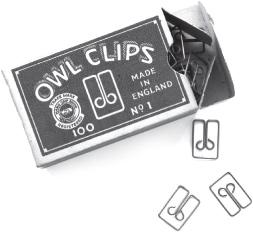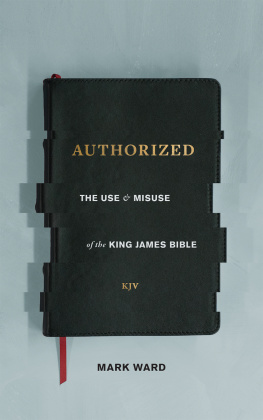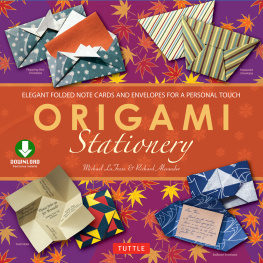
James Wards blog, I Like Boring Things, has featured in the Independent and the Observer and on the BBC website. He is co-founder of the Stationery Club in London. His annual Boring Conference has featured in the Independent, the Guardian, the Wall Street Journal and the Sunday Times and on BBC Radio 4. Adventures in Stationery is his first book.

A JOURNEY THROUGH YOUR PENCIL CASE


First published in Great Britain in 2014 by
Profile Books Ltd
3a Exmouth House
Pine Street
London EC1R 0JH
www.profilebooks.com
Copyright James Ward 2014
The right of James Ward to be identified as the author of this work has been asserted in accordance with the Copyright Designs and Patents Act 1998.
All rights reserved. Without limiting the rights under copyright reserved above, no part of this publication may be reproduced, stored or introduced into a retrieval system, or transmitted, in any form or by any means (electronic, mechanical, photocopying, recording or otherwise), without the prior written permission of both the copyright owner and the publisher of this book.
Illustrations on pages reproduced courtesy of iStock. All other text illustrations from the authors collection and other copyright-free sources. Additional photography of items from the authors collection by Micheline Mannion at Profile Books.
A CIP catalogue record for this book is available from the British Library.
eISBN 978 1 84765 871 5
All reasonable efforts have been made to obtain copyright permissions where required. Any omissions and errors of attribution are unintentional and will, if notified in writing to the publisher, be corrected in future printings.
ACKNOWLEDGEMENTS
T his being my first book, I was surprised and slightly bewildered by the number of different stages involved in turning a bundle of words into a book, and it feels slightly unfair that there is only one name on the front cover when so many other people were involved in the process.
There wouldnt be a book at all were it not for Andrew Gordon at David Higham Associates, and I am massively grateful to him for his support and encouragement. Thanks also to Marigold Atkey.
Enormous thanks to everyone at Profile Books (past and present) who was involved in turning my scraps of paper into a book, including Lisa Owens, Rebecca Grey, Daniel Crewe, Anna-Marie Fitzgerald, Paul Forty and Andrew Franklin. Particular thanks must go to Sarah Hull for her incredible job of editing my text and shaping it into something coherent. Thank you also to copy-editor Fiona Screen for correcting my many mistakes.
Given that the subject matter of this book is all about the pleasure of physical objects, it was important that the design and layout of the book were right, and I could not have hoped for a better cover designer than Nathan Burton, who understood exactly what the book needed and delivered it beautifully. Thanks also to Pete Dyer and Micheline Mannion at Profile for all their work on compiling the images throughout the book and the beautiful endpapers.
A book like this would be impossible without the assistance of the many brands and stationery companies featured in its pages. Particular thanks go to STABILO, Bostik, BIC, Helix, 3M, Ryman, Sheaffer and Henkel for supplying company information. Id also like to thank Kevan Atteberry, Geoff Nicolson and Spence Silver for answering my questions.
I also need to thank Neal at Present & Correct for running the most wonderful stationery shop in London. Go there. Go there now.
Thanks also to Bob Patel and everyone at Fowlers Stationers in Worcester Park for inspiring a life-long passion.
If Ed Ross hadnt created the #stationeryclub hashtag on Twitter, its unlikely this book would exist. Thank you Ed.
Finally, Id like to thank Natassia Caffery for her patience during the weekends and evenings when I was lost in research and surrounded by bits of paper and Post-it Notes.
(Oh, I also need to thank my mum for telling everyone that she met in the last year or so to buy this book.)
CHAPTER
Velos 1377 revolving desk tidy

I grew up in Worcester Park, a small town in Surrey. As a child, I would regularly visit Fowlers, an independent stationer on the high street. This shop had always interested me. Yes, there was a bigger WHSmith at the bottom of the hill, and yes, I spent quite a lot of time looking at pens in there too, but it wasnt the same. Fowlers seemed more serious about stationery. WHSmith had books and magazines and toys and sweets and videos. Fowlers were more dedicated. They sold different types of clips and tags, not the sort they sold in Smiths. They had foolscap suspension files. Office supplies. Grown-up things. It was a quiet shop. Ponderous. A bit like a library. Or at least half of it was. The other half was given over to greetings cards and wrapping paper and cheap gifts. That side didnt interest me. But this half my half captivated me with its racks of pens and pencils. I would spend long periods of time here studying these objects. Picking them up, turning them over in my hand. Sometimes Id even buy something.
A few years ago, I returned to Fowlers. It was still the same as I remembered it; very little had changed. Even the man behind the counter was the same. There wasnt anything in particular that I needed, but I wandered around the store, letting my eyes drift from item to item. Behind some packets of record cards (Silvine, 204 mm 127 mm, ruled), I saw a rather tatty-looking box. It was square, about six inches by six inches and about two inches tall. On the top, in white lettering on a lurid pink background, it said VELOS 1377 REVOLVING DESK TIDY, and underneath in slightly smaller writing Six compartments with cover next to a black-and-white picture of the revolving desk tidy itself. I picked it up. Id never heard of Velos before, and looking at the box, Im not surprised. This desk tidy was quite possibly older than me. The box looked like it must have been from the late 1970s. It was covered in dust. It didnt look like anyone had picked it up for years; it had just been stuck at the back of a shelf, forgotten about. I had to own it. I took it to the counter to pay. The man behind the counter looked for a barcode, but there wasnt one it came from a time before barcode scanners. Fortunately, it had a faded price sticker in one corner: 5.10 (this couldnt be the original price, surely? It was too expensive. When had the price been changed?). The man behind the counter shrugged, keyed the price into the till and, as I paid, he made a note of the item in a little stock book.
When I got home, I opened the box carefully I didnt want to tear it. Inside, there it was: the 1377 Revolving Desk Tidy. The desk tidy was in perfect condition not surprising as, despite its age, Id effectively bought it as new. Small and round and moulded in high impact styrene, it had a transparent cover showing its six compartments. The round tidy was divided into six segments for all types of small sundries, and looked a bit like a grapefruit cut across the middle. The cover had an opening the same size as one of the compartments and a little lid you could slide across to open or close. You could spin the whole thing round so whichever compartment you wanted to access was under the opening, allowing you to reach in and take some paperclips or drawing pins or whatever else you decided to fill your six compartments with (the picture on the cover showed the desk tidy empty; there was no serving suggestion Velos customers were trusted to use their initiative).
Next page















